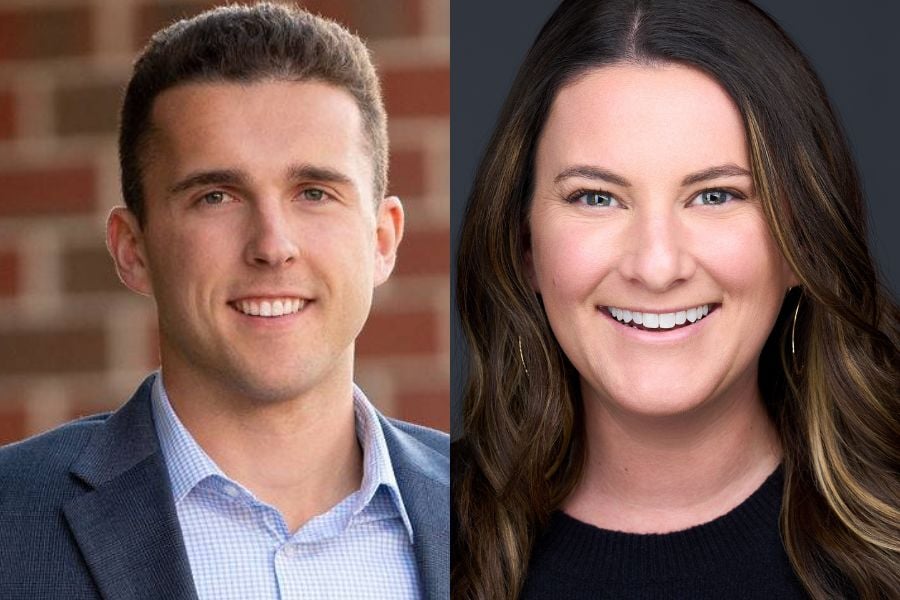

They spend hours scrolling through TikTok, they’re regularly active on Instagram, and yet it turns out they're more prepared than any other generation when it comes to planning their wills and estates.
A recent study from Trust & Will found that while millennials are taking the lead on getting their deathly affairs in order, Gen Zers are the silent leaders when it comes to planning their wills and legacy.
This shouldn’t come as a surprise. Most of the young generations have lived through such world events as 9/11, the 2008 financial crisis, mass shootings and a worldwide pandemic. They’re also technology-centered, pragmatic, self-starters and more concerned about the state of the environment than any other generation.
With the internet and social media taking up so much of Gen Zers’ lives, they can make more informed choices, and discuss their findings and opinions with other like-minded young people.
“They're following all this financial content, they’re really engaged, and they want to learn because they want to set themselves up for success,” said Jack Heintzelman, financial planner at Boston Wealth Strategies. “They don't want to work until age 65, then retire. They want to have meaning in their lives and they want to build themselves up to have flexibility.”
Young entrepreneurs are even establishing end-of-life planning websites, apps and tools so that other Gen Zers can curate their own afterlives.
“There's a lot of information in front of them,” added Heintzelman, who’s a member of Gen Z himself. “They tend to be a lot more curious and making sure that they are set up for success younger where they can enjoy the other things in their lives that are important to them.”
That comes, he said, with making sure their financial affairs are in order and their money is not only being invested in the right ways, but also is protected. “That comes down to insurances and estate planning,” Heintzelman added.
A recent study by end-of-life platform Aura found Zoomer respondents were four times more likely than baby boomers to plan ahead and make a bucket list. Instead of caving in to fear, they are showing a preference for empowerment, which calls for action.
Paul Schatz, founder, president and chief investment officer at Heritage Capital, says while he’s been in the industry for 34 years, his younger clients are more interested, approachable and agreeable to working on estate plans at a younger age than any of the previous generations he’s worked with.
Kelly Regan, certified financial planner and vice president at Girard, a Univest Wealth Division, said Gen Zers are important clients for advisors because of the wealth transfer that's bound to happen.
“Gen Z wants to get started, and they're more apt to get started investing, and more interested in it, especially with Covid, but it's more making sure the information that they're getting is appropriate for them,” Regan said.
Mandy Ritter, senior specialist for wealth planning at Captrust, said five essential estate documents that clients should have are a last will and testament, a financial durable power of attorney, a health care power of attorney, a living will (or an advanced directive) and HIPAA authorization.
“That way you're covered, you have people that can act on your behalf if you're incapacitated,” she said.
Advisors should also remember digital assets when working with clients on estate planning and ensure an executor has access to passwords so accounts can be securely and successfully closed.
Whether advisors currently have Gen Z clients or plan to work with some in the future, Heintzelman shared a few tips on conversations that can start a successful relationship.
“Go and start talking to that generation but listen,” he said. “Don't lead with products, don't lead with solutions. Listen to what their goals and visions are and how they feel about money.
“Get to that money stuff. Worry with them,” Heintzelman added. “They like talking about that and they will take that advice, if you find them where they are.”

By listening for what truly matters and where clients want to make a difference, advisors can avoid politics and help build more personal strategies.

JPMorgan and RBC have also welcomed ex-UBS advisors in Texas, while Steward Partners and SpirePoint make new additions in the Sun Belt.

Counsel representing Lisa Cook argued the president's pattern of publicly blasting the Fed calls the foundation for her firing into question.

The two firms violated the Advisers Act and Reg BI by making misleading statements and failing to disclose conflicts to retail and retirement plan investors, according to the regulator.

Elsewhere, two breakaway teams from Morgan Stanley and Merrill unite to form a $2 billion RIA, while a Texas-based independent merges with a Bay Area advisory practice.
Orion's Tom Wilson on delivering coordinated, high-touch service in a world where returns alone no longer set you apart.
Barely a decade old, registered index-linked annuities have quickly surged in popularity, thanks to their unique blend of protection and growth potential—an appealing option for investors looking to chart a steadier course through today's choppy market waters, says Myles Lambert, Brighthouse Financial.
